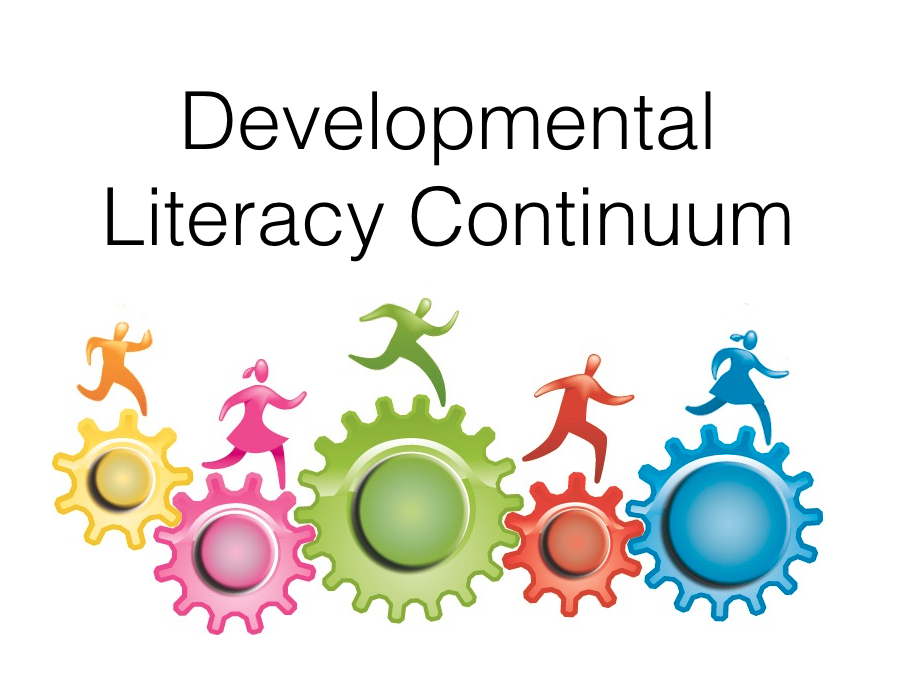My Year of Experimentation: Intensive ESL and the Developmental Literacy Continuum
The Developmental Literacy Continuum was introduced to us just over a year ago by Thomas Stenzel of LEARN. After, a couple sessions, we were hooked! This tool would give teachers a way to assess literacy (in this case writing) objectively, and help us decide on appropriate strategies and teaching activities that would promote further learning. More importantly, it would empower students by providing them with feedback that would promote a growth mindset. They would be made aware of their accomplishments, and learn what the next steps of their learning would be. Wow!
Manon Hamel of the CS de la Capitale was one of the teachers who attended that meeting, and who has been experimenting with the Developmental Literacy Continuum with her Intensive ESL students. In the following article, she will share her experience of the past year with you.
___________________________________________________________________________
 I would like to take the opportunity to explain how this developmental approach to learning has totally changed the way I teach.
I would like to take the opportunity to explain how this developmental approach to learning has totally changed the way I teach.
First, I have to say that after teaching Intensive ESL for almost 20 years I had reached a point in my career where I wanted to find a way to better engage my students in their learning. My desire was to pinpoint areas where they were struggling in order to help them become better communicators using their second language. When I was first introduced to the Developmental Literacy Continuum I felt like this could be exactly what I needed to help me achieve just that. As it turned out, it was only the beginning of a new frame of mind for me!
Little did I know that the Developmental Literacy Continuum would change so many aspects of my teaching!
First I realized there were many things about teaching writing and reading to my students that I wanted to improve upon: I was always using the same types of texts, I was not taking the time to look at the structure nor characteristics of each genre of text, I rarely made time for reading for pleasure in my class. I also thought I could put more emphasis on the planning and the editing phase when presenting a writing task. And finally I had the desire to offer more engaging situations to trigger students to write.
So, after much reflection, I implemented the following transformations in my classroom.
Reading to my students is now part of my daily routine. I include writing for fun, and not-so-structured writing periods in their schedule. I introduce different genres of literature, and we take the time to analyze and pinpoint the characteristics of a text. I make time for student-teacher conferences and provide comments and feedback that target the next indicator to work on. I also find time to allow peer feedback, which has my students more engaged from the early stages of the task.
I now design writing tasks in order to allow students in different phases of their development to be able to accomplish the task. For example the students could plan a situation in teams first, and then work on writing their text individually. Another example is where the class prepares a web organizer to tally vocabulary, expressions or characteristics of the text useful for the task so they can use it as a resource for writing.
In my opinion, here is what makes the Developmental Literacy Continuum a powerful tool. Collected data helps the teacher support the student by using the indicators to guide the strategies one needs to work on in order to move onto the next phase. It also enables students to engage, take ownership of their learning and celebrate their achievements with teachers and peers.
I now realize how powerful the impact of providing constructive meaningful feedback is to students, and how collecting data over time has helped me target the areas the students need to work on in order to improve their writing.
And of course this has also had a positive impact on their speaking! (Possibly the next phase of the experimentation process!)
I strongly recommend you bringing the Developmental Literacy Continuum into your classroom. You will find students taking responsibility of their learning, and you, as well as they, will be able to better target what areas they need to work on in order to improve their skills.
It is a tool that supports teaching, and is beneficial to all students. What a deal!
-Manon Hamel, CS de la Capitale
To learn more about the Developmental Literacy Continuum Pilot project, please contact Elizabeth Alloul at ealloul@learnquebec.ca.
